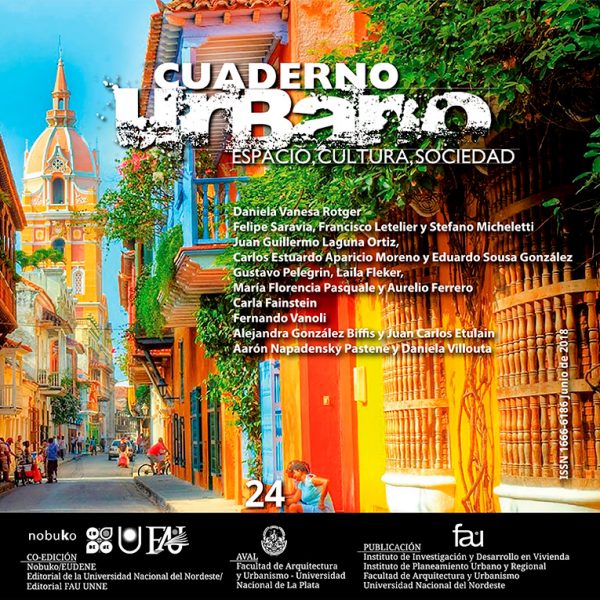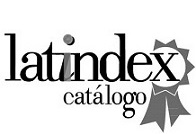Neither urban nor rural: intergenerational changes in subjective territorial affiliation in the Maule Region of Chile.
DOI:
https://doi.org/10.30972/crn.24242920Keywords:
Urbanity, urbanization, rurality, subjective territorial affiliationAbstract
Using data from a 2014 survey of 1,634 people in the Maule region of Chile, we examine the intergenerational evolution of subjective perceptions of territorial affiliation and its link with objective definitions of rurality and urbanity. The study applies a correlational method the “chi-squared test” to determine the associations between variables. The hypothesis is corroborated: subjective territorial affiliations do not always coincide with administrative territorial classifications, and changes of affiliation between successive generations do not necessarily go from rural to urban, but give rise to profiles with diverse characteristics, one of the more important being a rural-urban hybridization. It is concluded that the Maule region is increasingly mixed in terms of identity, thus providing concrete evidence to challenge the idea that urban progress is linear and having only one meaningDownloads
References
ÁLVARO, Daniel (2010). “Los conceptos de comunidad y sociedad de Ferdinand Tönnies”, Papeles Del CEIC, 52.
BARBERO, Jesús Martín (1998). “Modernidades y destiempos latinoamericanos”. En Nómadas, 8.
BERDEGUÉ, Julio; JARA, Esteban; MODREGO, Felix; SANCLEMENTE, Ximena; BRENNER, Neil y SCHMID, Christian (2016). “La era urbana en debate”. En Eure, 42 (127).
BURDETT, Ricky y RODE, Philipp (2006). “The urban age project”. En Burdett, Ricky y Sudjic, Deyan (Eds.), The endless city, Phaidon, Londres.
CANALES, Manuel y HERNÁNDEZ, María Cristina (2011). “Del fundo al mundo. Cachapoal, un caso de globalización agropolitana”. Espacio Abierto, 20 (4).
CANALES, Manuel y CANALES, Alejandro (2012). “La Nueva Provincia: (re) poblamiento de los territorios agrarios. Chile 1982-2002”. Revista Anales, Séptima Serie, 3.
CIMADEVILLA, Gustavo (2014). “Las formas de la rurbanidad – Anuncios e imágenes”. En Congreso ALAIC, Pontificia Universidad Católica del Perú, Lima.
CONCHA, Claudia; ERRÁZURIZ, Tomás; LETELIER, Francisco; MICHELETTI, Stefano; RASSE, Alejandra, y SALCEDO, Rodrigo (2012). “¿Urbano o rural? Repensando territorios, discursos y prácticas al margen de la metrópolis”. En Congreso ALAS, Santiago de Chile.
CONCHA, Claudia (2013). “Trayectorias sociales de sujetos rurales que por primera generación acceden a la educación superior universitaria en la región del Maule, Chile”, Sociedad Hoy, 24.
CONCHA, Claudia y LETELIER, Francisco (2009). “Identidad e Identidades en el Maule, Claves para imaginar el desarrollo regional”. Gobierno Regional del Maule, Talca.
GALIMBERTI, Silvina (2011). “Rurbanidad, objetos y significaciones. Un estudio acerca de los actores rurbanos y la política pública”. En XXXIV Congresso Brasileiro de Ciências da Comunicação, Recife.
GERMANI, Gino (1963) Política y Sociedad en una Época de Transición. De la sociedad tradicional a la sociedad de masas. Paidós, Buenos Aires.
GÓMEZ, Sergio (2002) La Nueva Ruralidad ¿Qué tan nueva? Editorial Universidad Austral de Chile, Valdivia.
GÓMEZ, Sergio (2003). “Nueva Ruralidad - Fundamentos teóricos y necesidad de avances empíricos”. En Seminario internacional El mundo rural: transformaciones y perspectivas a la luz de la nueva ruralidad, Bogotá.
JAMESON, Fredric (1988). “Cognitive mapping”. En L. Grossberg & C. Nelson (Eds.), Marxism and the interpretation of culture. Chicago: University of Illinois Press.
KENBEL, Claudia (2006). “A mitad de camino entre lo urbano y lo rural: actores y actividades de rebusque”. UNI revista, 22 (3).
KENBEL, Claudia y CIMADEVILLA, Gustavo (2009). “La rurbanidad desde el enfoque de las memorias sociales”. En X Jornadas Argentinas de Estudios de Población, Asociación de Estudios de Población de la Argentina, San Fernando del Valle de Catamarca.
LETELIER, Francisco, y CONCHA, Claudia (2016). “Nuevas y antiguas identidades regionales: conflicto, exclusión e hibridaje. El caso de la región del Maule”. Eure, 42 (126).
MICHELETTI, Stefano y LETELIER, Francisco (2016). “Aproximaciones al estudio de las prácticas rurbanas en la ciudad intermedia chilena. Actividades de rebusque en Talca”, Bi¬furcaciones, 21.
NISBET, Robert (1967) The Sociological Tradition. Basic Books, Londres.
SOLARI, Aldo (1968) Sociología rural latinoamericana. Paidós, Buenos Aires.
SOROKIN, Pitirim, ZIMERMANN, Carle, y GALPIN, Charles (1930) A Systematic Source Book in Rural Sociology. The University of Minnesota Press, Minneapolis.
UNITED NATIONS POPULATION FUND [UNFPA] (2007) State of world population 2007: unleashing the potential of urban growth. United Nations Population Fund, New York.
UNITED NATIONS HUMAN SETTLEMENT PROGRAMME [UN-HABITAT].(2007). “The state of the world’s cities Report 2006/2007–30 years of shaping the Habitat agenda”. UN-HA¬BITAT, Londres.
WIRTH, Louis (1938). “Urbanism as a way of life”. En American Journal of Sociology, 44 (1).
Downloads
Published
Issue
Section
License
CUADERNO URBANO sustains its commitment to the Open Access policies for scientific information, on account of the fact that both scientific publications and public funded research must circulate freely on the Internet and without restrictions.
CUADERNO URBANO ratifies the Open Access model in which the contents of scientific publications are available in full text free of charge on the Internet, without temporary embargoes, and whose editorial production costs are not transferred to the authors. This policy proposes breaking down the economic barriers that generate inequities both in access to information and in the publication of research results.





.jpg)








